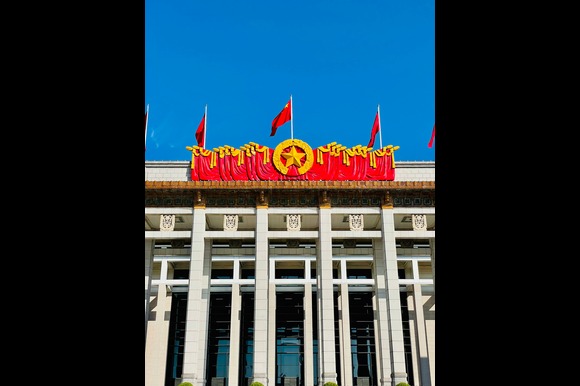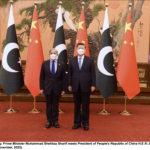A delegation of 21 members from various sectors in Bangladesh concluded a 10-day visit to China on Thursday, advocating for enhanced relations between the two nations. This visit coincided with China’s efforts to engage the interim government in Dhaka through the extension of loan repayment terms and the provision of duty-free imports.
The delegation was led by Abdul Moyeen Khan, a prominent figure from the opposition Bangladesh National Party (BNP), and was invited by the ruling Communist Party of China (CPC).
This visit marked the first occasion on which China has invited a large, cross-sectoral delegation from Bangladesh for an official engagement, which has been characterized as a significant diplomatic milestone in the relationship between the two countries, as reported by the state-run Global Times.
In light of the ongoing political transitions and socio-economic challenges in Bangladesh, the delegates expressed their belief that maintaining stable cooperation with China, particularly through the Belt and Road Initiative (BRI), would contribute to a more secure and prosperous future for their nation. The delegation included representatives from various political parties, student leaders, academics, and journalists.
The group, which featured Adviser for Foreign Affairs Touhid Hossain and members from hardline Islamic parties such as Jamaat-e-Islami, was received by China following the recent changes in the Sheikh Hasina government. During Hossain’s earlier visit in January, China had agreed to extend the loan repayment period for Bangladesh, provide duty-free and quota-free access for Bangladeshi goods, and designate hospitals in Kunming for the treatment of Bangladeshi patients, thereby strengthening bilateral relations, according to Bangladesh’s state-run news agency BSS.
Beijing has expressed its willingness to consider Dhaka’s appeal for a reduction in the interest rates on Chinese loans extended to Bangladesh. This commitment was made following a meeting between Hossain and Chinese Foreign Minister Wang Yi on January 21, as reported by news sources.
During the meeting, Bangladesh and China formalized an agreement titled ‘Implementation Plan of the MoU on Exchange of Hydrological Information Sharing of the Yarlung Tsangpo-Jamuna River.’
The Yarlung Tsangpo, known as the Brahmaputra River in Tibet, is significant in this context. Reports from Bangladeshi media indicate that Hossain requested a decrease in the interest rate from the current 2-3 percent to one percent, the elimination of the commitment fee, and an extension of the loan repayment period from 20 years to 30 years for both the Preferential Buyer’s Credit (PBC) and Government Concessional Loan (GCL).
Wang acknowledged Bangladesh’s commendable history of loan repayments and tentatively agreed to consider extending the repayment period while also promising to review the request for a reduction in interest rates, according to the reports.
As per the Economic Relations Division (ERD), Bangladesh’s outstanding debt to China exceeds $5.57 billion, which constitutes approximately nine percent of the nation’s total debt. Hossain’s visit marks the highest-level engagement by an interim government official with China following the ousting of Prime Minister Sheikh Hasina’s administration in August of the previous year amid widespread protests.
Hasina’s government was succeeded by an interim administration led by Nobel Peace Prize laureate Muhammad Yunus. Notably, just days before the protests erupted, Hasina had visited China for official discussions with President Xi Jinping.






